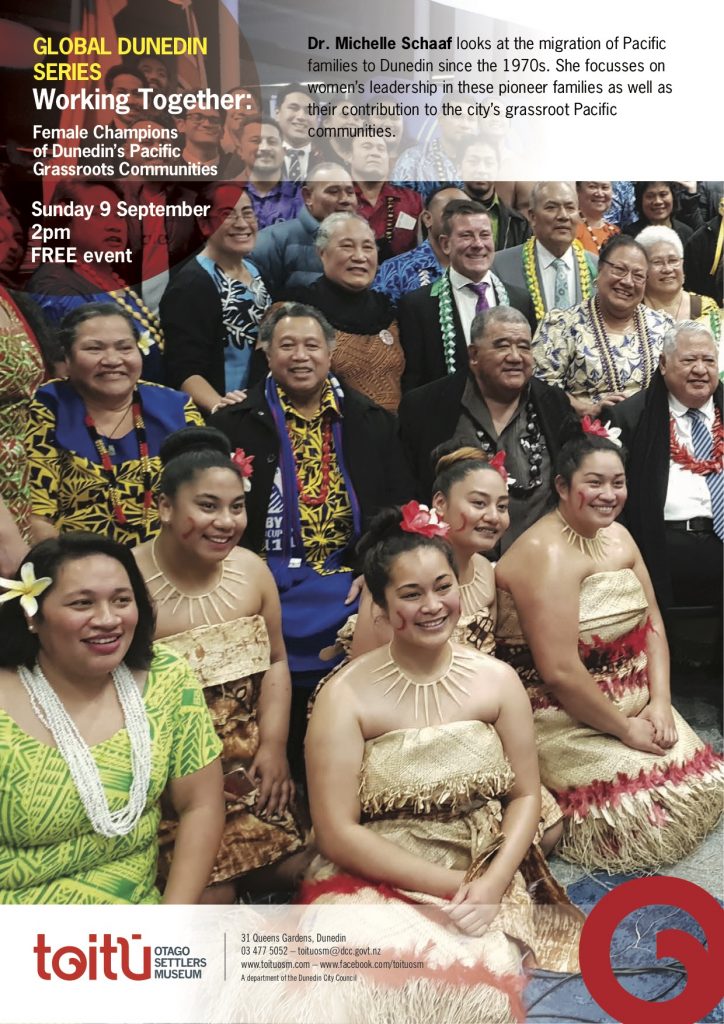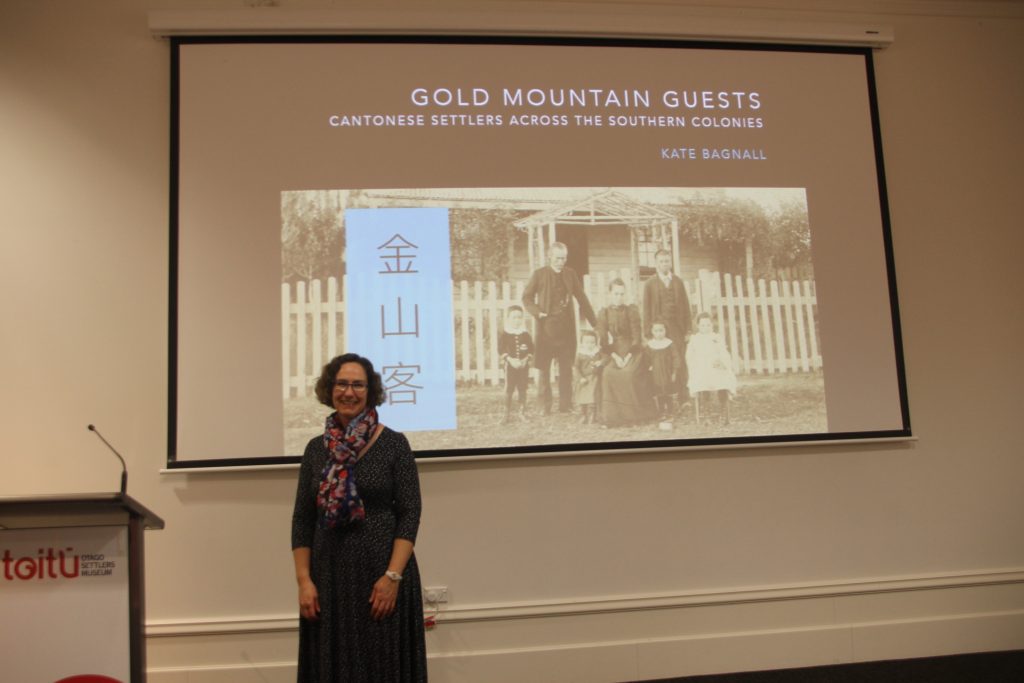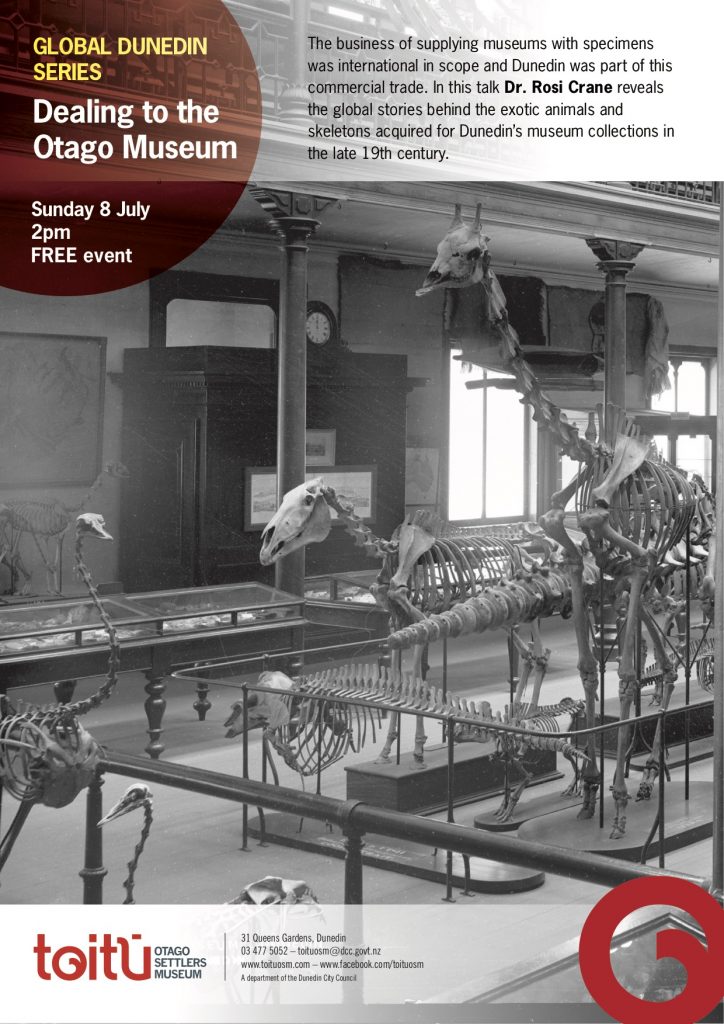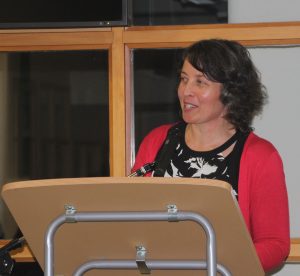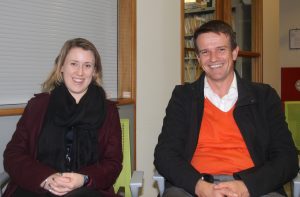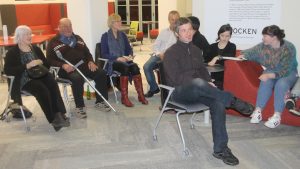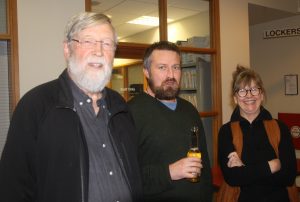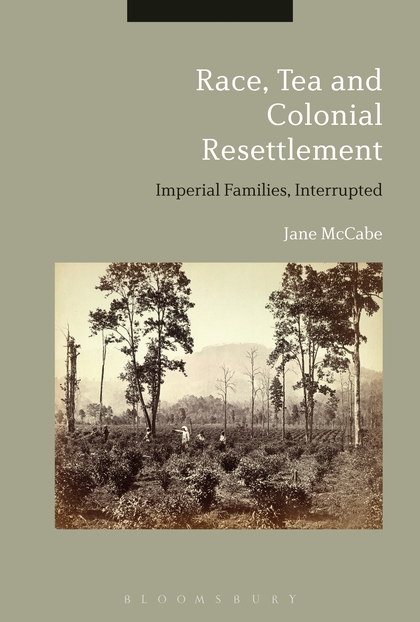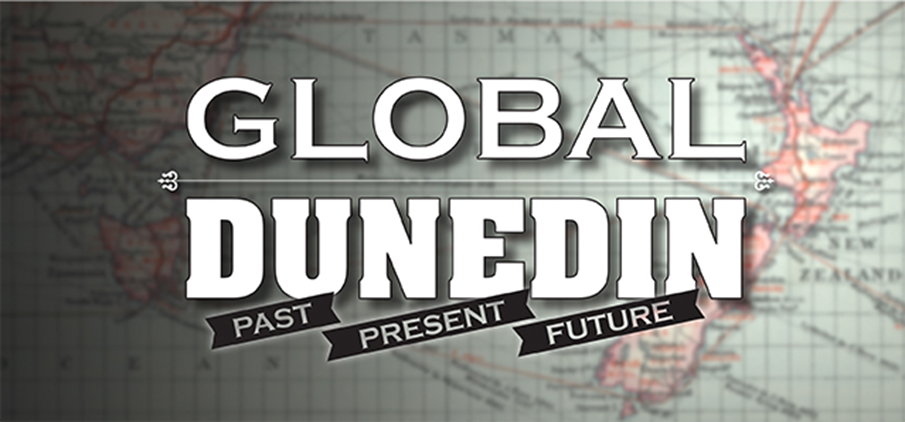Global Dunedin Lecture on Pacific Women’s Leadership
Our next Global Dunedin lecture will be presented by Dr. Michelle Schaaf (Te Tumu: School of Māori, Pacific and Indigenous Studies) on Sunday 9 September. She will discuss the migration of Pacific families to Dunedin, focusing in particular on the role of female leadership within these pioneer families, especially their contribution to the city’s Pacific communities. Join us at 2pm on Sunday at Toitū’s Auditorium for this free event.
Global Dunedin Series
In June, the Centre was delighted to host one of our favourite historians, Dr. Kate Bagnall, who was visiting Dunedin to conduct research at local archives for her current project tracing Chinese naturalisation across the British colonies. Kate also kindly presented on an aspect of this research in our Global Dunedin speaker series. In her talk she traced the legal and personal histories of naturalisation, connecting the Dunedin experience into a larger Australasian setting, arguing that tracing naturalisation processes and records helps to uncover different histories of migration and mobility from the standard narrative of single male sojourners. This is particularly important research because Chinese presence in the British colonies is often told through a focus on exclusion and immigration restriction. Incredibly, Kate also presented fresh research barely hours old from her visit to the Dunedin archives, revealing that there were 450 Chinese who naturalised in New Zealand prior to 1908, with 197 of those in Otago. The first in Otago was Louis Gay Tan in 1870. We thank Kate for a wonderful lecture and wish her all the best for the research project.
Our next Global Dunedin lecture will be given by Dr. Rosi Crane on July 8 on the international trade in museum specimens during the nineteenth century. When the Otago University Museum opened in its new building on Great King Street in 1877, amongst other things there was a giraffe skeleton, a stuffed lion, several monkeys, and innumerable birds from Australia, Europe, India and New Zealand. From the outset the collections were international. Many of the exotic animals came to Dunedin from commercial dealers from London, Sydney, Bremen and Prague. Some of the purchase money came from limited museum funds but most came from trading moa bones. Kiwi and kakapo skins had their value too but they were not as valuable as moa. A few scraps of correspondence has survived which tells us the price that these animals fetched, what else the dealers had to offer and what the curators wanted to fill perceived gaps. The business of supplying museums with specimens was extensive and Dunedin was part of this global network of supply and demand. The story of how historical commercial trade practices have impacted on the Museum is told here for the first time.
Jane McCabe’s new book on Indian migrants
Last Thursday saw the successful launch of Jane McCabe’s new book, Race, Tea and Colonial Resettlement: Imperial Families, Interrupted at the Hocken Collections. Launched by Centre Co-director, Angela Wanhalla, this monograph (published by Bloomsbury) explores the experiences of the “Kalimpong Kids”, mixed-race children of tea planters in India, from their missionary-run boarding school, to their migration to New Zealand. Jane is descended of one of the children, and a number of other descendants came to the launch.
Jane, who works in the Department of History and Art History is a keen member of the Centre for Research on Colonial Culture. A Marsden Grant recipient, she is now researching land and inheritance in Aotearoa New Zealand.
Introducing Global Dunedin
March 23 is Otago Anniversary Day, but it also happens to be the occasion for the launch of a new initiative from the Centre for Research on Colonial Culture: Global Dunedin. Have a look at Global Dunedin’s Blog, which is designed to serve as a forum for discussing Dunedin’s historical development and its changing economy, social life, and cultural pattern. The project will showcase how the city has changed over time and the ways in which its pasts have shaped its current and future prospects. The blog – together with an associated Facebook page and Twitter account (@GlobalDunedin) – will disseminate reflections on the city’s history and life here now.
In addition to a social media presence, the Global Dunedin project team are also running a public lecture series in conjunction with Toitū Otago Settlers Museum: in these Sunday afternoon talks, leading local researchers and thinkers will reflect on different aspects of Dunedin’s past and present.
Follow us and join in the conversations!
CFP: Migrant Cross-Cultural Encounters
Migrant Cross-Cultural Encounters: A Multidisciplinary Conference
24-26 November 2014
University of Otago, Dunedin, New Zealand
Historical and contemporary global migration involves a range of cross-cultural encounters, but how are these interactions discussed, debated, and defined? This three-day multidisciplinary conference seeks to examine past and present migrant encounters with other peoples in a diverse range of locations. Papers from various disciplinary angles are welcome from a variety of themes and from any historical period or region.
Themes may include but are not limited to:
- Race, ethnicity and citizenship
- War, migration and cross-cultural contact
- Labour, migration and cross-cultural encounters
- Empire, contact and mobility
- Gender, migration, and cross-cultural encounters
Please provide:
- a title
- a 250-word abstract of your paper
- brief biographical information (including institutional affiliation and contact details).
All proposals will be assessed after the deadline of Friday 11 July 2014. If you require an earlier acceptance please advise us.
Proposals or requests for further information should be sent to: migrants@otago.ac.nz
The conference is sponsored by four key multidisciplinary research hubs in the Division of Humanities at the University of Otago:
- Centre for Irish and Scottish Studies
- Centre for Research on Colonial Culture
- Asian Migrations Research Theme
- Comparative and Cross-Cultural Studies Research Theme
For further information see the website (click the highlighted text).

